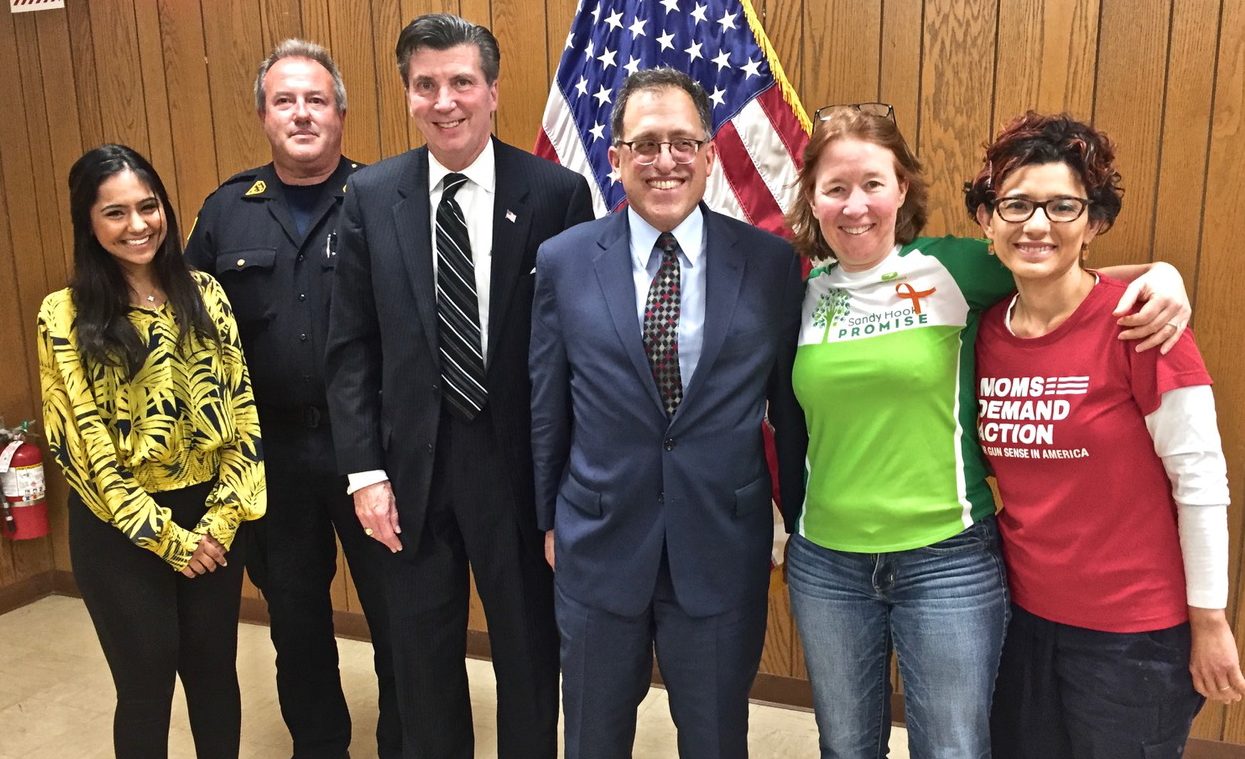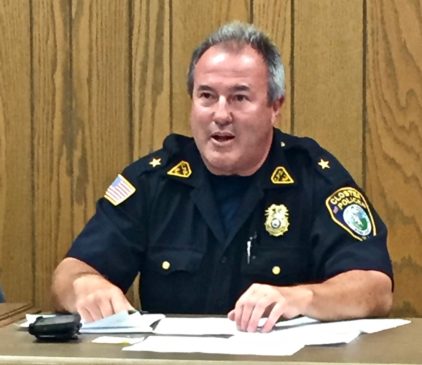
[slideshow_deploy id=’899′]
BY SUSAN MCTIGUE
CORRESPONDENT
Closter, New Jersey—In an average year in America, more than 2,700 kids die from gun violence, and more than 17,000 children and teens are shot in murders, assaults, suicides and attempts, unintentional shootings, or by police intervention according to the Brady Campaign to Prevent Violence.
Since the Columbine shooting in 1999, more than 187,000 students have experienced a shooting on school campuses during school hours.
On Wednesday, May 16, a panel of experts assembled at the Closter Senior Citizen Center to discuss how government action and private citizens working together are addressing this scourge.
This non-partisan event was organized by the Closter Democratic Club to create an opportunity to learn about and discuss the current state of local laws on gun registration and ownership, how school safety measures are being addressed, what is the emotional and educational impact of school lockdowns on students, and the importance of talking to children at home about gun safety.
Moderator Michael Kafer introduced Closter Borough Attorney and former Mayor Edward Rogan, who explained that New Jersey has one of the toughest sets of gun laws in the country, only surpassed by California.
New Jersey is one of only seven states that bans assault weapons. The restrictions on who can own or carry a gun are numerous and stringent.
Closter Police Chief Dennis Kaine followed with an explanation of how the requirements of gun ownership are enforced within the borough. The process of getting a permit is lengthy, taking about six months, and requires fingerprinting and a variety of references. The audience asked him numerous questions about ways in which the police are able to monitor guns that may come into town with outsiders or may be discovered during non-related circumstances.

Moms Demand Action for Gun Sense in America, a non-partisan grassroots movement, was represented by Larisa Mendez Downes of Fair Lawn. She explained that the group supports the Second Amendment, and works with survivors and educators to prevent gun violence in the home and elsewhere.
“You must ask that awkward question—Do you have a gun in your house?—before arranging a playdate for your child. The onus of safe gun storage must be on the adults, not the children,” said Mendez Downes.
Moms Demand Action works nationally and locally to effect legislation on a number of issues including the lowering of limits on gun ammunition.
Ishita Jamar, junior class president at Northern Valley High School at Demarest, described how her school has trained students, teachers and staff to provide safeguards in the event of a crisis. Evacuation drills, safe walk-out drills, and utilizing hidden areas in classrooms if a gunman opens the door are practiced regularly just as fire drills have been done for decades. She explained that when the students hear “lockdown” over the loudspeaker, they know exactly what to do and have become accustomed to the routine, which has reduced the level of fear or panic that otherwise might occur. The administration has brought in speakers to address relevant topics. A police officer is on duty at the front entrance with a police car on the grounds.
“They have learned all our names, know us well, and make us feel that we are protected by people who are familiar and caring about our safety,” said Jamar.
An audience member who is a fifth grade teacher in another town explained that monthly drills are done even with the youngest children so they become used to the routine and it becomes “second nature” rather than frightening.
Closter Superintendent Joanne Newberry oversees students from age 3 to 14 and emphasized the importance of knowing the correct age-appropriate language to use when communicating with young children.
“We don’t talk to young children about guns, but our staff is well-trained. We must have safeguards to protect them in this world we live in.”
The final panelist was Jeanne Theisen of Ridgewood representing the Bergen chapter of Sandy Hook Promise, a national non-profit organization founded by family members who lost loved ones at Sandy Hook Elementary School in 2012.
With school programs in every state, its “Say Something” program encourages students to report concerns about threatening behavior, such as seeing an online photo of a someone holding a gun. A free app is available and has been used extensively, including the thwarting of a potential school attack where a student was found to have guns and ammunition at home with plans to commit violence at school. Another program, “Start with Hello,” teaches students how to become more socially connected in a positive way.
Newberry said that these programs are being used successfully in Closter’s Tenakill Middle School.
Sean Costa, another high school student in attendance, explained why he came to hear the speakers.
“Everybody says something should be done, but intelligent conversation doesn’t happen often enough. This program provided a good range of views regarding ways to deal with gun reform and its impact on all of us.”
The panel discussion was organized by a group of concerned Closterites including Jayne Rubenfeld-Waldron, Adrienne Isacoff, Paul McDonald, Karen Garguilo, Jean Stella, Michael Kafer and others.
For those who could not attend, a video of the evening’s discussion has been posted on Facebook on the Closter Democrats page. That organization plans to sponsor other non-partisan community events in coming months.
Photos by Susan McTigue
